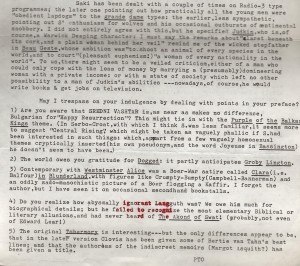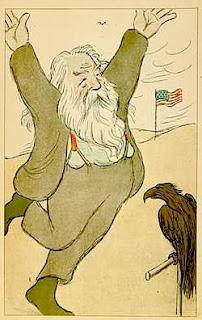 Found – a short poem on the sinking of the Titanic by James Rhoades_ (1841 – 1923) anAnglo- Irish minor poet. He was admired in his day and one of his poems is in The Oxford Book of English Mystical Verse. There are spiritual undertones in this poem too. The poem was published in a collection of his verse from 1915 Words by the Wayside. He made a speciality of commemorative verse or vers d’occasion. The book was a signed presentation from the author with a short verse added (ssee below).
Found – a short poem on the sinking of the Titanic by James Rhoades_ (1841 – 1923) anAnglo- Irish minor poet. He was admired in his day and one of his poems is in The Oxford Book of English Mystical Verse. There are spiritual undertones in this poem too. The poem was published in a collection of his verse from 1915 Words by the Wayside. He made a speciality of commemorative verse or vers d’occasion. The book was a signed presentation from the author with a short verse added (ssee below).
The Titanic had sunk 1n April 1912 with the loss of more than 1500 lives and the poem shows what a huge event this was in its day, on a par with 9/11 or Pearl Harbor. James Rhoades had also written about the disaster in 1912 in the Westminster Gazette emphasising the self sacrifice of the crew
No frantic scream; no frenzied strife;
Unflinching gave their sacrifice;
Unflinching stood that noble host,
Each man at his appointed post..
This later poem with its enticing pantheist theme, although touching on heroism, is less about the stiff upper lip etc.,
A lesson from the Titanic
See in great moments how we cast aside
The fear-spun cloak of hatred, foe to foe –
Poor outworn rags of rivalry and pride!
A soul-fraught vessel to destruction hurled
Sets free the mighty heart -stream of the world
Unlocks it’s frozen flow.
Continue reading






